5 Things to Know Before You Rent Your First RV
A guide to the types of RVs, essential utility hookups, selecting a campground, and more
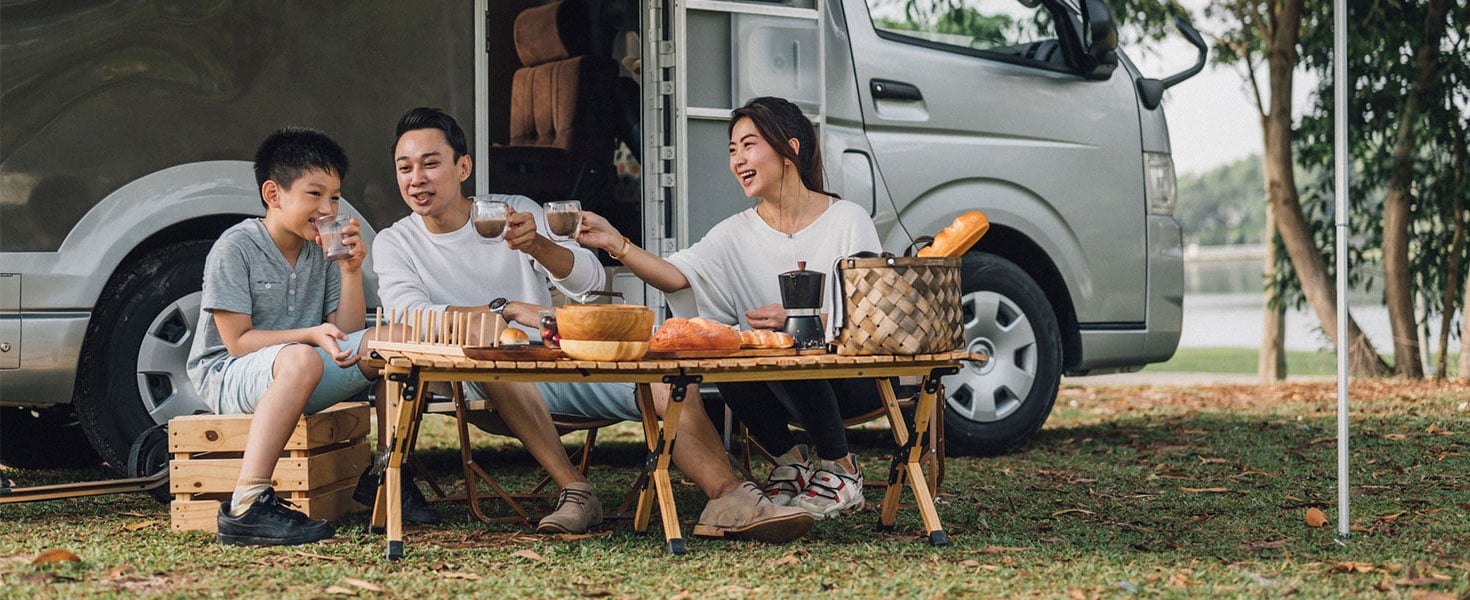


From an essential tent on wheels to a luxury living experience, renting an RV can be a fun, exciting, and different way to take a road trip or vacation. However, it can also be intimidating, especially if you’ve never driven or camped in an RV. To help prepare for your adventure, here are 5 things to know before you rent your first RV.

1. The types of RVs
While you don’t need a special license to drive or haul an RV, there are different types and classes of RVs. The two primary types of RVs are drivable motor homes and towable RVs.
Motor homes
Motor homes are RVs you drive and sleep in. There are three classes:
Motor Home RV Class A
- Larger size (ranges from 29 to 44 feet long)
- Resembles a coach bus
- Offers the most space
- Can be difficult for first-time RV renters to drive and park, due to larger size
- More limited in areas that can accommodate the larger size—depends on destination
Motor Home RV Class B
- Also called camper vans
- Smallest and easiest to drive (ranges from 17 to 23 feet long)
- Sleeps fewer people
- Smaller beds, kitchenettes, and tiny bathrooms
- Can be a good option for one or two people
Motor Home RV Class C
- Perfect for first-time renters
- Larger than Class B but much easier to drive than Class A (ranges from 21 to 41 feet long)
- Typically built on a truck chassis or van frame—drives more like a large truck
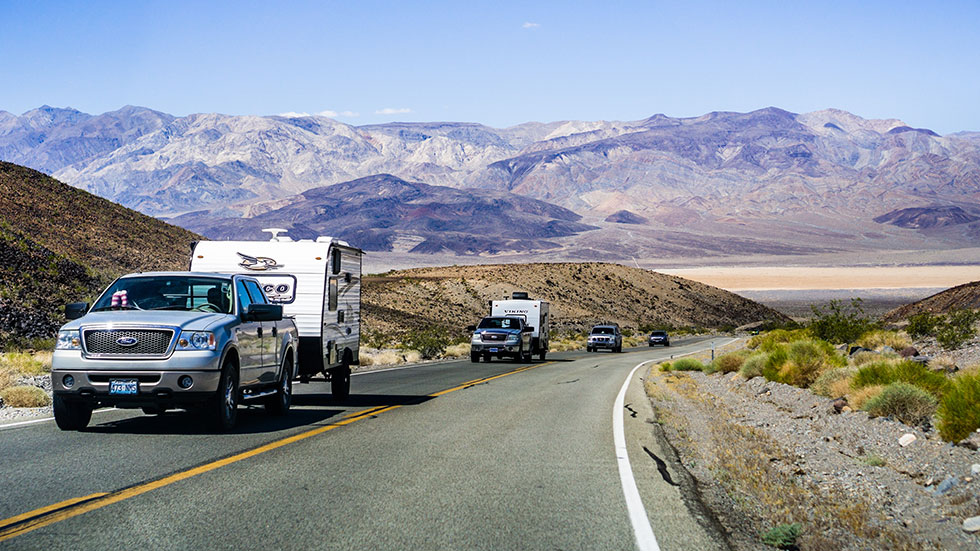
Towable RVs
Towable RVs are towed by an SUV or pickup truck, so you need a vehicle that has the capacity to tow the size of RV you choose.
Folding or Pop-up Trailer
- Small and lightweight
- Some can be towed by a car
- Features canvas sides that open for space to sleep or hang out
- Most don’t include bathrooms or kitchens
Fifth Wheel
- Due to heavier weight, requires being pulled by a long-bed truck with a special hitch
- Described as a house on wheels, with split-level floor plans, large kitchens with full-size appliances, and full bathrooms
Travel Trailer
- Similar to fifth wheel in layout
- Smaller—special hitch is not required
- Can be pulled by minivans, SUVs, or trucks
Truck Camper
- Sets up inside the bed of a pickup truck and provides a small space to cook, sleep, and relax
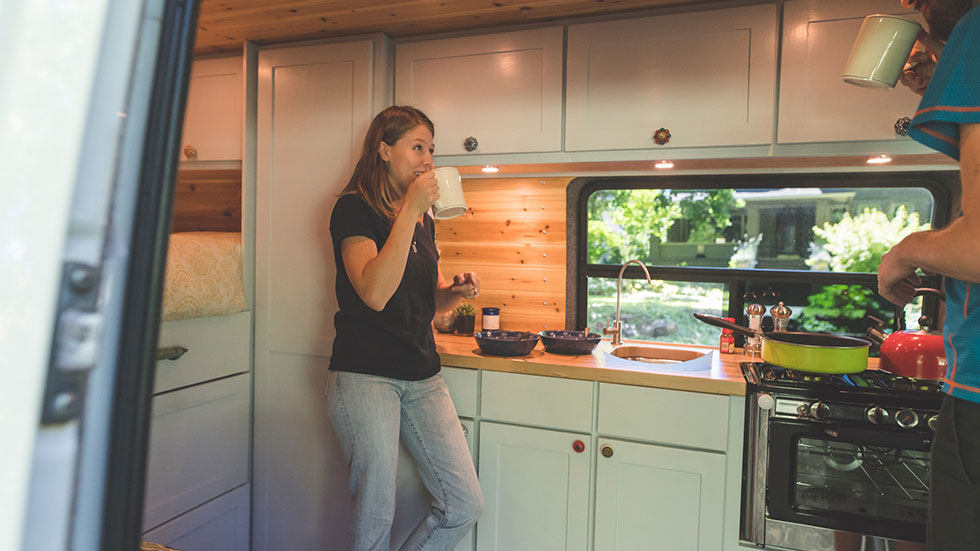
2. Know your budget
RV travel is considered fairly affordable, but the costs vary, depending on your preferences. To set a realistic budget, research RV and campground costs ahead of time, and consider any planned activities or other expenses. Be sure to include:
- RV rental cost (average is around $150 per night but depends on the type and class)
- Gas
- Insurance
- Campground fees
- Food
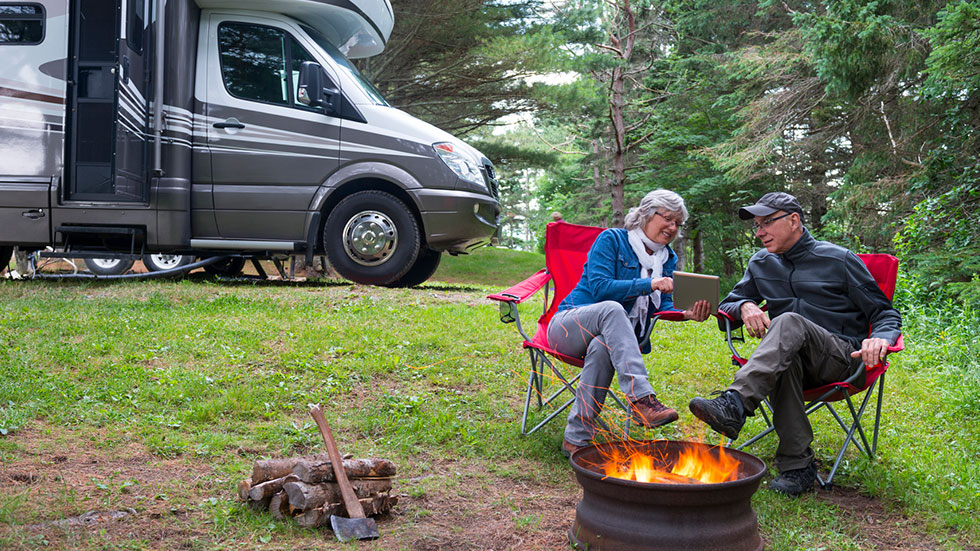
3. Research the campground
There are various levels, ranging from bare-minimum campgrounds that only offer a place to park, to high-end campgrounds with full water, electric, and sewage hookup. Many high-end campgrounds also include beautiful views, pools, golf courses, and more. These "luxury" sites are more expensive, but it may be worth it, depending on the type of camping experience that interests you.
Research the activities in and around the campground, hookups, facilities, and any features offered at the individual camping spots, such as a picnic table. It's also wise to check the ratings and reviews for the campground. Make sure you contact the campground as far in advance as possible, especially if you want to reserve a specific spot.
4. Pack strategically
First-time campers should talk with their RV rental company or friends who camp for their recommendations on what to pack. Remember, you may need to pack differently than you would for staying in a hotel or a resort. For example, you’ll want to pack:
- Linens and towels
- Cookware and kitchen supplies
- Tool kit
- First aid kit
- Food
- Sunscreen and insect repellent
- Toilet paper, paper towels, and cleaners
Avoid packing smaller kitchen appliances, bulk foods, or fragile items. Also, check state restrictions on firewood for each RV site on your route. In some cases, bringing firewood from another region is not permitted. Most campgrounds offer or sell firewood.
Take a folder with documents you’ll need for your travels—the RV manufacturer's manual (if available), vehicle registration, campground reservations, insurance information, and contact numbers for roadside assistance.
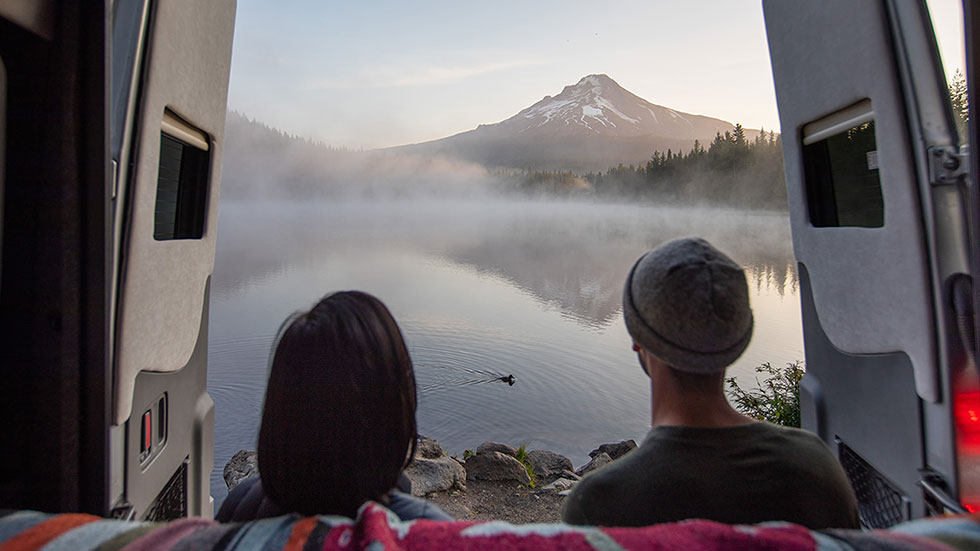
5. Ask about the camping spots and hookups
When you make the arrangements to rent the RV, be sure to get a walk-through, including detailed instructions for utility hookups, opening the awning, dumping the tanks, and any other operations.
A lot of the same details apply when you are booking a campground. Ask about utility hookups, Internet/Wi-Fi services, trash facilities, and other amenities. Booking a site without hookups means you won't have access to water or electricity at your site, so be sure to ask about public bathroom and/or shower facilities.
Don't worry—RV hookups aren’t as tricky as you may think. The RV manufacturer's manual will explain what to do, and you can always ask those around you for help. Do not connect to hookups if you’re unsure about the procedure.
Lastly, make sure the campground spot you reserve is the right size for your RV. Some spots accommodate larger RVs while other spots only fit smaller RVs.